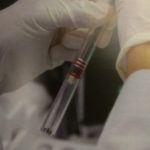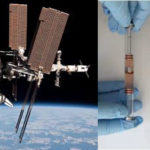GAUSS has acquired experience in the innovative field of Space Biology, especially through the study of Glioblastoma cancer cells’ behaviour in Space conditions.
Since 2009, GAUSS Lab Group at the School of Aerospace Engineering of Roma “La Sapienza” has been involved in an international collaboration with Morehead State University (MSU) Space Science Center and the Genetic Department of IRCCS-Hospital “Istituto di Genetica Medica Casa Sollievo della Sofferenza” (Italy) to perform a biomedical research investigating the combined effects of microgravity conditions and ionizing radiation on the survival rate of cancer cells, using Space platforms to improve the knowledge of Glioblastoma cancer cells behaviour.
GlioSpace University project aimed at comparing the cells reactions, testing them on ground and on orbit conditions (e.g. DNA analisys), sending biological samples onboard a microsatellite (in flasks) and then returning them to Earth. These experiments show new opportunities of using small satellites, widening the small satellites systems’ areas of application.

Cells samples being integrated for STS-134 mission
GlioLab/GlioSat precursor missions (GlioSpace Phase 0) have flown two times onboard the American Space Shuttle Endeavour during the missions STS-134 and STS-135 in 2011 and their results have been studied by experts in Italy and Kentucky.
Dr. Chantal Cappelletti Phd Thesis – with Prof. Filippo Graziani and Prof. Robert Twiggs as Advisors – studied Glioblastoma cancer cells’ behaviour inside a Space Shuttle.

Endeavour Shuttle (Mission STS-134) and a biological sample being analized
Biomedical missions have the objective of performing low-cost researches carrying biological payload in-orbit. Biomedical research in the Space environment can represent a unique opportunity to benefit future manned Space exploration (to improve the effects on astronauts’ health) and contribute discovering more advanced treatments.
